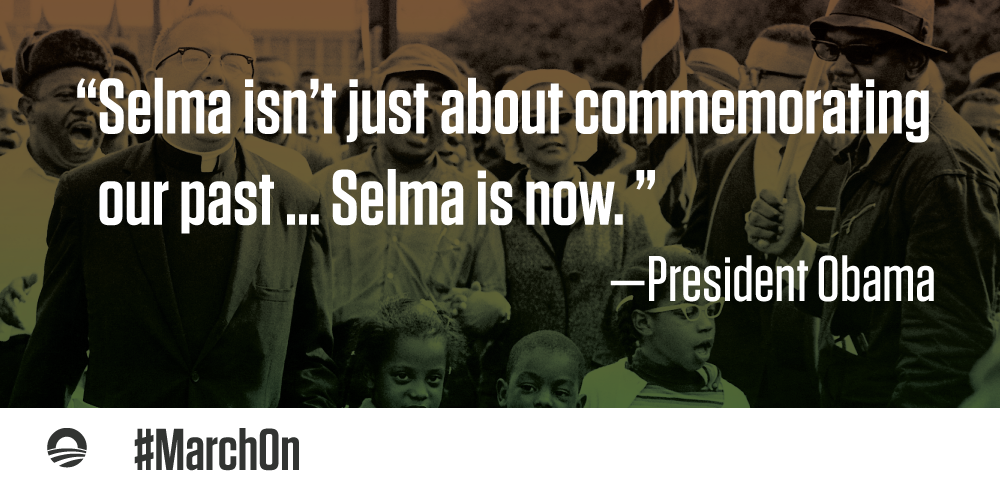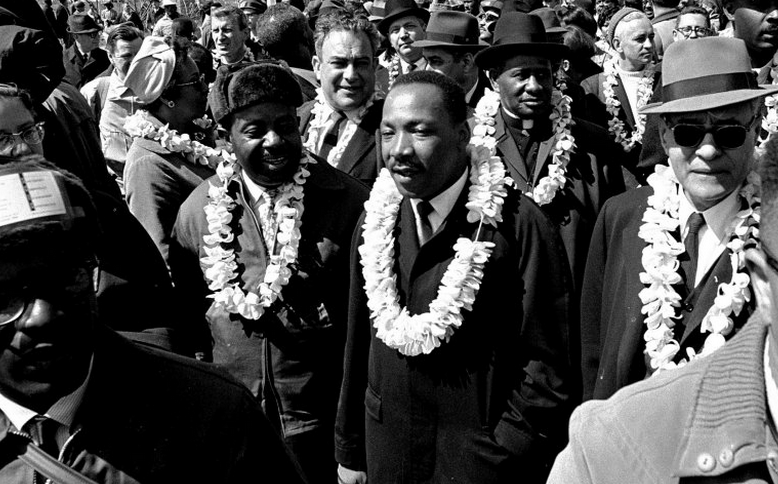Fifty years ago today: President Lyndon Baines Johnson
At times history and fate meet at a single time in a single place to shape a turning point in man’s unending search for freedom. So it was at Lexington and Concord. So it was a century ago at Appomattox. So it was last week in Selma, Alabama.
There, long-suffering men and women peacefully protested the denial of their rights as Americans. Many were brutally assaulted. One good man, a man of God, was killed. […]
There is no Negro problem. There is no Southern problem. There is no Northern problem. There is only an American problem. And we are met here tonight as Americans-not as Democrats or Republicans–we are met here as Americans to solve that problem.
This was the first nation in the history of the world to be founded with a purpose. The great phrases of that purpose still sound in every American heart, North and South: “All men are created equal”-“government by consent of the governed”-“give me liberty or give me death.” Well, those are not just clever words, or those are not just empty theories. In their name Americans have fought and died for two centuries, and tonight around the world they stand there as guardians of our liberty, risking their lives.[…]
Experience has clearly shown that the existing process of law cannot overcome systematic and ingenious discrimination. No law that we now have on the books-and I have helped to put three of them there-can ensure the right to vote when local officials are determined to deny it. […]
The real hero of this struggle is the American Negro. His actions and protests, his courage to risk safety and even to risk his life, have awakened the conscience of this Nation. His demonstrations have been designed to call attention to injustice, designed to provoke change, designed to stir reform.He has called upon us to make good the promise of America. And who among us can say that we would have made the same progress were it not for his persistent bravery, and his faith in American democracy.
For at the real heart of battle for equality is a deep-seated belief in the democratic process. Equality depends not on the force of arms or tear gas but upon the force of moral right; not on recourse to violence but on respect for law and order. […]
This is the richest and most powerful country which ever occupied the globe. The might of past empires is little compared to ours. But I do not want to be the President who built empires, or sought grandeur, or extended dominion.
I want to be the President who educated young children to the wonders of their world. I want to be the President who helped to feed the hungry and to prepare them to be taxpayers instead of tax-eaters.
I want to be the President who helped the poor to find their own way and who protected the right of every citizen to vote in every election.
I want to be the President who helped to end hatred among his fellow men and who promoted love among the people of all races and all regions and all parties.
The Voting Rights Act was passed and signed into law on August 6, 1965.

